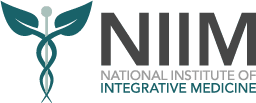By Lisa Hodge & Kathleen Robb
Thyroid disorders, especially hypothyroidism (underactive thyroid) are fairly common, impacting up to 10% of an older adult population, with the stats showing an estimated further 3.6% undiagnosed (Empson, Flood, Ma, Eastman, & Mitchell, 2007).
Hypothyroidism is up to 8 times more common in women than men, with 1 in 8 women likely to develop a thyroid disorder in her lifetime (AMerican Thyroid Association, n.d.). It is more common in older individuals and in those with existing autoimmune diseases, such as type 1 diabetes and coeliac disease.
Thyroid health is an issue that causes confusion and misunderstanding. And with a recent report by the Australian Government showing that 70% of women experience gender bias in obtaining a diagnosis and treatment of health conditions (Kearney, 2024), combined with standard testing not addressing all thyroid markers, it is not surprising that this occurs.
The thyroid is a butterfly shaped gland in the neck. It receives a signal from the pituitary gland in the brain in the form of thyroid stimulating hormone (TSH) which leads to it then producing thyroid hormones. Routine blood tests assess the TSH levels but often not the actual hormones the thyroid produces.
A holistic view of health shows us that one system impacts another. Our stress levels and the resulting adrenal hormones have a direct impact on thyroid function. Thyroid function can then impact metabolism, menstrual health and digestion. A thorough assessment needs to look at the adrenals, a full investigation of the thyroid, and consider these downstream impacts.
Likewise, symptoms we attribute to the thyroid overlap greatly with symptoms caused by stress and stress hormones, insulin resistance, perimenopause, ADHD and other health concerns.
Symptoms include:

There are foods that are particularly protective and supportive of thyroid health, which are easy to add to the diet. These can depend on the specific issues; however one broadly applicable nutrient for thyroid health is selenium. Selenium is both involved in the enzyme that converts thyroid hormone to its active form, but is also protective of the gland itself (Hillert Winther, Rayman, Bonnema, & Hegedus, 2020). However, the safe dose range of selenium is narrow so begin by adding selenium foods to the diet rather than taking supplements without the adice of a healthcare professional. Selenium is found in Brazil nuts, seafood, meat, poultry and whole grains. Just 6 Brazil nuts will provide most of your recommended daily intake (National Institute of Health, 2024)
To best navigate the confusing symptoms, impacts around the body and to avoid the invalidation of having your concerns dismissed, speak to a naturopath or integrative doctor. Subclinical thyroid disease CAN be picked up early. If you’re experiencing some of these symptoms ask for a FULL thyroid panel (TSH alone or even TSH and T4 are not enough to see the full picture). And to finish on good news: NIIM will soon be launching thyroid health packages that include naturopathy, thorough testing, and personalised prescriptions. Contact NIIM to register your interest.
Bibliography
AMerican Thyroid Association. (n.d.). Retrieved from Thyroid: https://www.thyroid.org/media-main/press-room/#:~:text=Prevalence%20and%20Impact%20of%20Thyroid%20Disease&text=Up%20to%2060%20percent%20of,thyroid%20disorder%20during%20her%20lifetime.
Association, A. T. (n.d.). Retrieved from https://www.thyroid.org/media-main/press-room/#:~:text=Prevalence%20and%20Impact%20of%20Thyroid%20Disease&text=Up%20to%2060%20percent%20of,thyroid%20disorder%20during%20her%20lifetime.
Empson, M., Flood, V., Ma, G., Eastman, C., & Mitchell, P. (2007). Prevalence of thyroid disease in an older Australian population. Intern Med J., 37(7):448-55.
Hillert Winther, K., Rayman, M., Bonnema, S., & Hegedus, L. (2020). Selenium in thyroid disorders – essential knowledge for clinicians. Nature Reviews Endocrinology, 165-176.
Kearney, G. (2024). 2 out of 3 women experience discrimination in healthcare. Retrieved from Department of Health and Aged Care: https://www.health.gov.au/ministers/the-hon-ged-kearney-mp/media/2-out-of-3-women-experience-discrimination-in-healthcare-0#:~:text=Two%20out%20of%20three%20women,relation%20to%20diagnosis%20and%20treatment.
National Institute of Health. (2024). Selenium. Retrieved from DIetary Supplement Fact Sheet: https://ods.od.nih.gov/factsheets/Selenium-HealthProfessional/
